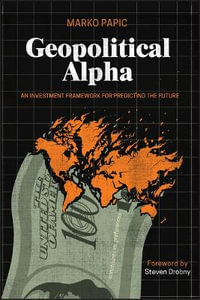
Bitcoin and Beyond
Cryptocurrencies, Blockchains, and Global Governance
By: Malcolm Campbell-Verduyn (Editor)
Hardcover | 21 November 2017 | Edition Number 1
At a Glance
Hardcover
$569.99
Ships in 15 to 25 business days
ISBN: 9780415792141
ISBN-10: 0415792142
Series: RIPE Series in Global Political Economy
Published: 21st November 2017
Format: Hardcover
Language: English
Number of Pages: 224
Audience: College, Tertiary and University
Publisher: Taylor & Francis Ltd
Country of Publication: GB
Edition Number: 1
Dimensions (cm): 23.39 x 15.6 x 1.42
Weight (kg): 0.49
Shipping
| Standard Shipping | Express Shipping | |
|---|---|---|
| Metro postcodes: | $9.99 | $14.95 |
| Regional postcodes: | $9.99 | $14.95 |
| Rural postcodes: | $9.99 | $14.95 |
Orders over $79.00 qualify for free shipping.
How to return your order
At Booktopia, we offer hassle-free returns in accordance with our returns policy. If you wish to return an item, please get in touch with Booktopia Customer Care.
Additional postage charges may be applicable.
Defective items
If there is a problem with any of the items received for your order then the Booktopia Customer Care team is ready to assist you.
For more info please visit our Help Centre.
You Can Find This Book In
This product is categorised by
- Non-FictionPolitics & GovernmentPolitical Structure & Processes
- Non-FictionAccounting & FinanceFinanceBanking
- Non-FictionComputing & I.T.Digital Lifestyle & Online World: Consumer & User GuidesInternet Guides & Online ServicesOnline Finance & Investing
- Non-FictionLawInternational Law
- Non-FictionEconomicsInternational EconomicsInternational Trade
- Non-FictionEconomicsPolitical Economy
- Non-FictionPolitics & GovernmentInternational Relations
























